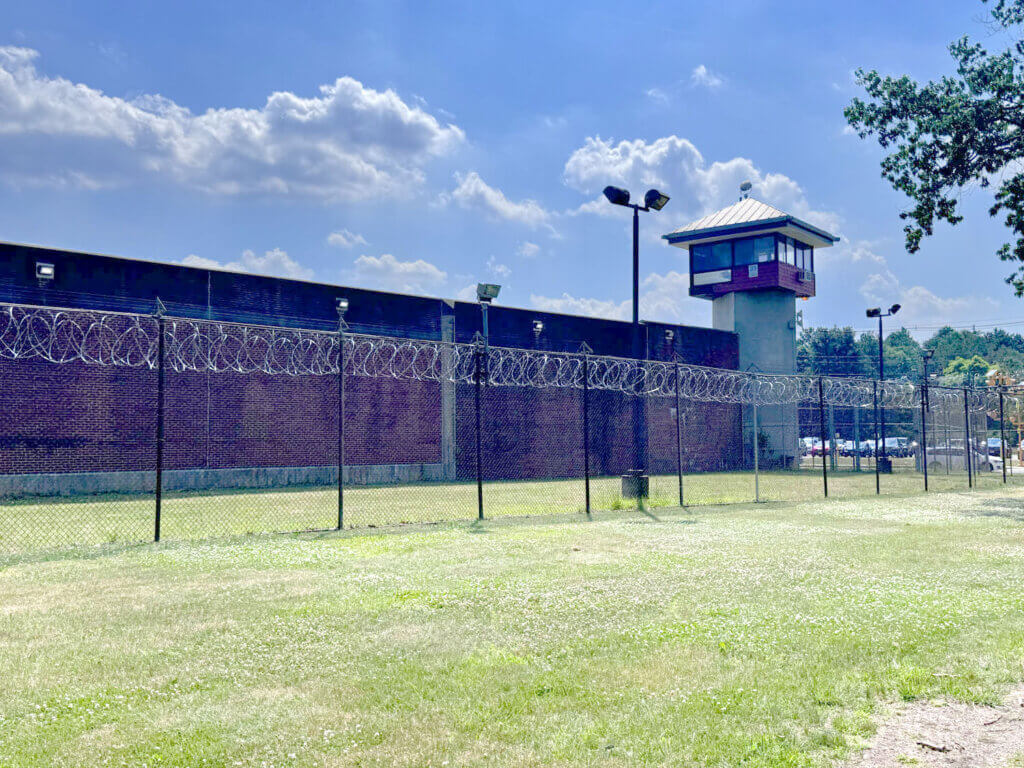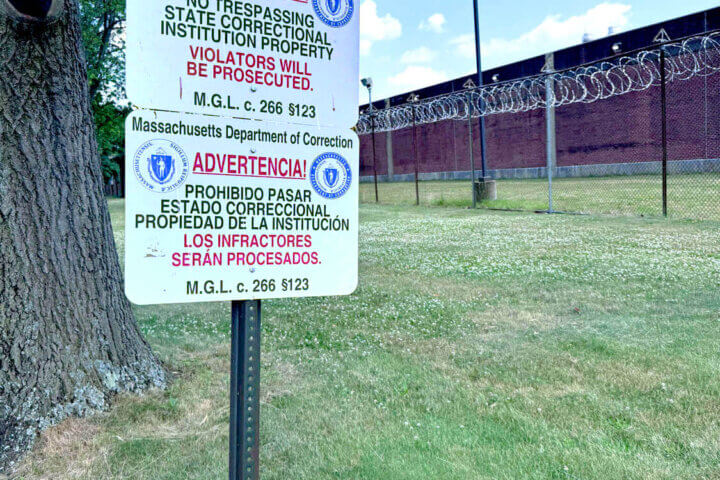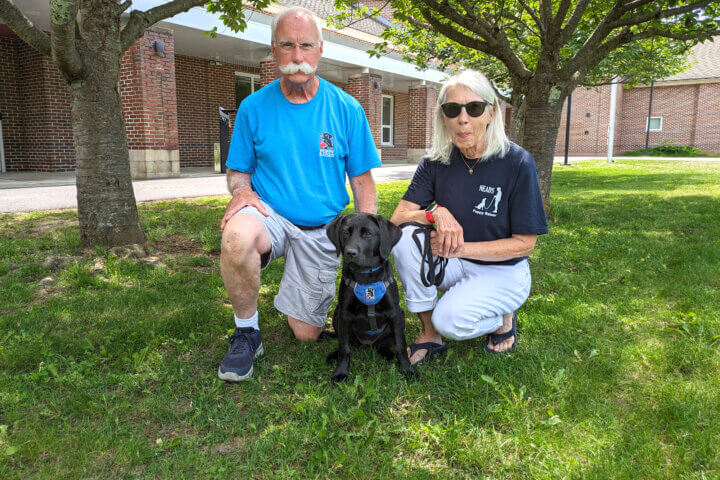By Erin Tiernan — Erin@theconcordbridge.org
The cell blocks at MCI-Concord will no longer hold any prisoners by the weekend’s end — but the prison won’t be decommissioned until state officials finalize the budget.
Transferring inmates out of Concord marks a major milestone in the state’s plan to close the 146-year-old men’s prison. It’s in keeping with Gov. Maura Healey’s timeline to shutter the aging facility as the focus shifts to what’s next for the sprawling 62-acre campus on the Route 2 rotary.
“The process of moving out all incarcerated individuals will be completed by June 30,” a state Department of Corrections spokesman told The Concord Bridge.
Just 71 inmates remained at the medium-security prison at the end of last week, the official said. The facility could hold just over 600 prisoners at peak capacity but had been half-full for nearly two years ahead of the governor’s January announcement that the prison would close this summer.
The state’s inmate population has halved in the last decade thanks to criminal justice reforms.
In announcing shutdown plans, Healey said the underutilized and aging Concord prison was near the top of the list of “state properties that we could repurpose and use for housing, for other things.”
Affordable housing advocates and town leaders alike are eager for residential redevelopment, but an exhaustive planning process for what replaces the 146-year-old prison has only just begun.
Concord has convened a new advisory board to analyze the town’s needs and vet zoning options and other control points.
“This is a group that is interested in moving fairly quickly,” said Select Board Clerk Mark Howell.

Keys to prison’s future
But even with the inmates out and a robust appetite for action on the local level, MCI-Concord can’t officially close without legislative approval.
That will happen in the state budget. It’s still unclear if lawmakers will strike a funding deal by the end of the month for the fiscal year that starts July 1. They haven’t passed an on-time budget in more than a decade.
The budget bill will also hold the keys to the timeline and precise process for planning around MCI-Concord’s redevelopment. The property could ultimately go up for sale as soon as 2026.
The state Division of Capital Asset Management and Maintenance will drive the process once the Legislature places the property under its authority. Lawmakers are looking to direct DCAMM’s commissioner to study the property and investigate redevelopment potential. It would give stakeholders — including Concord officials — a seat at the table.
DCAMM officials have already sketched out an 18-month study and planning process.
A DCAMM spokeswoman called MCI-Concord a “promising location for redevelopment” and said the final decision “would need to balance public benefit with the level of public investment necessary to attain those benefits.”
The proposed legislation outlining the terms of that process requires the state to hold three public hearings — all in Concord. The first must be held 45 days from passage of the budget bill — likely in mid-August or early September.
Concord will also have the right of first refusal to own the on-site wastewater treatment facility, with six months to decide. Until now, a lack of treatment capacity “has been an inhibitor to development in our community,” Howell said.





